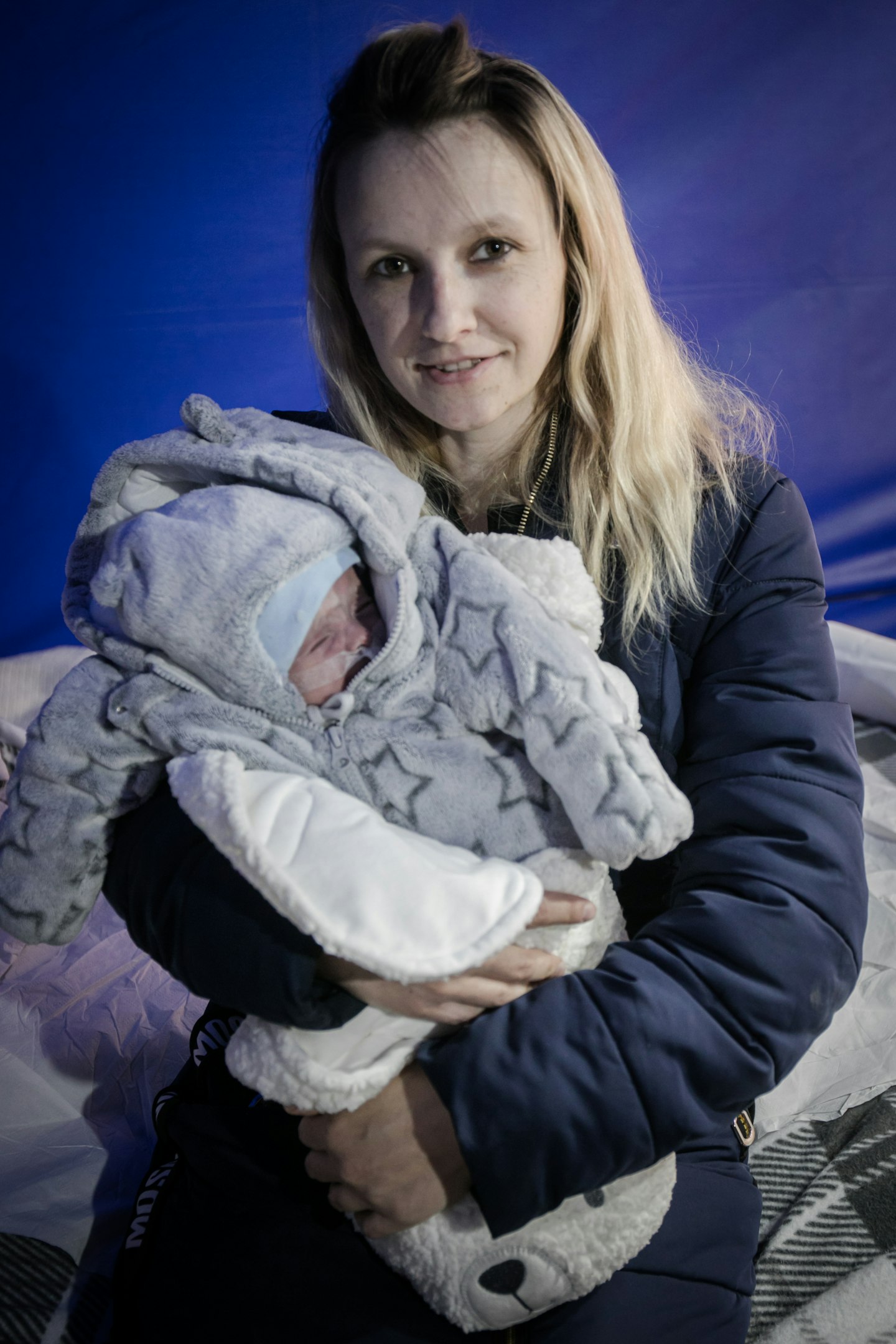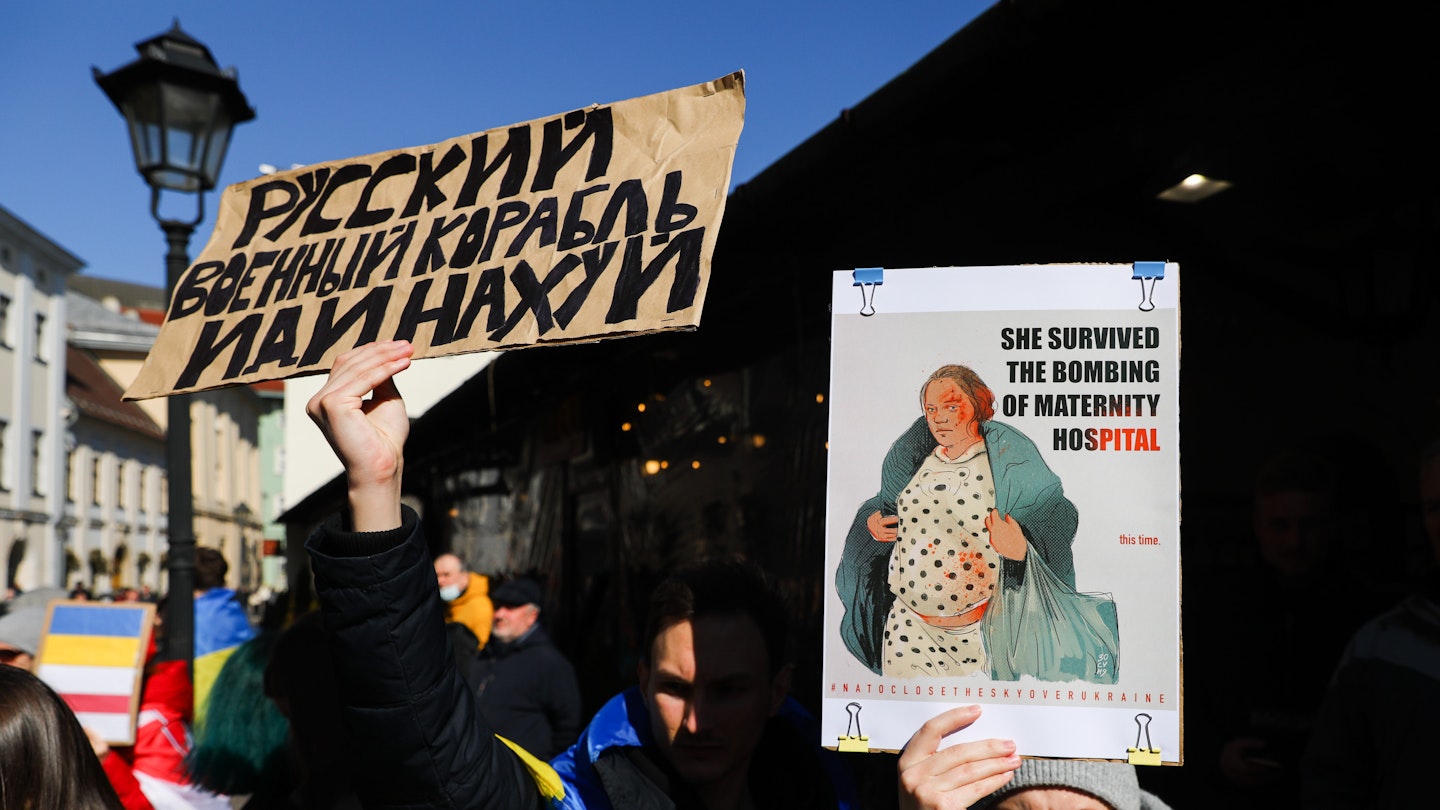This week, it's been reported that the Russian invasion of Ukraine has displaced more than 2.5million people. Since Ukrainian law stipulates that men between the ages of 18 and 60 must stay in the country to potentially fight on the front lines, the vast majority of those are women and children. And while fleeing war in your home is harrowing enough, an estimated 80,000 refugees are doing so while pregnant or having very recently given birth
Last week, the devastating attack on a maternity hospital in Mariupol, a city on the south coast of Ukraine, brought the specific hardships of pregnant women to the forefront of the news after haunting pictures were published showing them evacuating the wreckage of the hospital.
One image in particular of Ukrainian beauty blogger Marianna Podgurskaya, dressed in teddy-bear pyjamas and her face smeared with blood, went viral quickly. In response, the Russian Embassy in London misleadingly claimed that the photos were staged, writing in a now deleted tweet: ‘She actually played roles of both pregnant women on the photos. And first photos were actually taken by famous propagandist photographer Evgeniy Maloletka, rather than rescuers and witnesses as one would expect.’
The tweet was removed by Twitter after complaints from the UK government - with Boris Johnson's spokesperson stating it was clear 'disinformation'. Marianna has since given birth to healthy baby girl, according to Ukrainian press.
Another woman, pictured being carried on a stretcher from the wreckage holding her abdomen, which was covered in blood, tragically passed away along with her baby.
Operating surgeon Timur Marin found the pregnant woman's pelvis crushed and her hip detached. After delivering the baby via C-section and it showing no signs of life, he said, ‘More than 30 minutes of resuscitation of the mother didn’t produce results....both died.’
Speaking with Grazia, Plan International’s Gender in Emergencies Advisor Alexandra Parnebjork emphasised that the situation for expecting mothers – including those who are very young – is ‘dire’ in the war zone.
‘From our past experiences of emergencies, we know that in times of crises, childbirth can be a life-threatening experience, instead of a life-changing one. Women and girls can be forced to give birth in extremely dangerous conditions, without help from skilled health care providers in the safety of a health facility. We also know that complications during pregnancy and childbirth are the leading cause of death for 15–19-year-old girls globally, so preventing unintended adolescent pregnancy remains critical. The health and wellbeing of women and children must be protected before, during and after crises.’
It's a scene that UNICEF aid worker James Elder is witnessing first hand as he works to deliver vital care and resources to women who face giving birth in such inimical conditions.
‘With the intensification of the war in Ukraine, increasing numbers of pregnant women are having to flee their homes and give birth in bunkers, in the basements of hospitals,’ he told us. ‘It is essential that doctors working in these horrendous conditions get the supplies they need. The first 60 tonnes of UNICEF’s convoy last week were almost exclusively medical supplies – surgical equipment, resuscitation kits, midwifery kits.
I want to know that Emma will have both parents, that she will live and we will be the same family we were before it all started.
‘This kind of equipment is essential for new mothers like Valeria who I met in a children’s hospital in Lviv with her new-born baby, Emma. She was a thousand kilometres from home, from a city she loves, where her friends are, where Emma's grandparents are.’
Speaking of the unfathomable position she’s found herself in with her new-born, Valeria told James she was ‘mentally, not the best.'
‘I want to go home,' she said. 'I want to be with my family. I want Emma to have a future. I want to be sure of her future. I want to know that she will have both parents and she will live and we will be the same family we were before it all started.’
Nataliya is another young mother who fled Kyiv with her newborn son Artyom. Born three months premature, Artyom weighed just over one kilo and was being cared for in a premature baby unit when shelling started. Nataliya was forced to leave the hospital with Artyom and his three siblings.
ActionAid partner Polska Akcja Humanitarna (PAH) are delivering food and transport to Hrebenne, a village in southeastern Poland, where Nataliya and her family are now being cared for in hospital.

On top of the perilous work of delivering a child with the scarcest of provisions, mothers who have recently welcomed babies being met with bureaucratic hurdles preventing them from accessing safe passage to neighbouring countries with their newborns. The UK government’s own inauspicious approach to emergency visas has caused outrage across the country, and despite many other European countries opening their doors to Ukrainian refugees – with stories of Polish and Hungarian citizens’ hospitality at the borders a small glimmer of unity in a relentlessly bleak news cycle – there are still many struggling to leave the country.
Speaking from Moldova, Plan International’s Global Humanitarian Director Dr Unni Krishnan told Grazia, ‘We are seeing women and children arriving at the border in freezing conditions with just one backpack and one jacket.
‘As we speak to them, they are telling us that some new mothers with babies just days old are stuck for several hours at the border because the newborns don't have birth certificates, passports or any of the paperwork needed to pass through. New mothers who are exhausted and freezing, trying to feed and look after their babies who have been born into conflict, need urgent support to cope with the unique challenges they face.'
It is any parent’s wish that their child should have more in life that they have had themselves. But for Valeria and Nataliya, and the 80,000 women like them, their only priority is ensuring the survival of their families and an upbringing for their children unravaged by war.
READ MORE:
Prince William's Comments About Ukraine Have Caused A Social Media Storm
This Is Where You Can Join Protests To Support Ukraine In The UK
